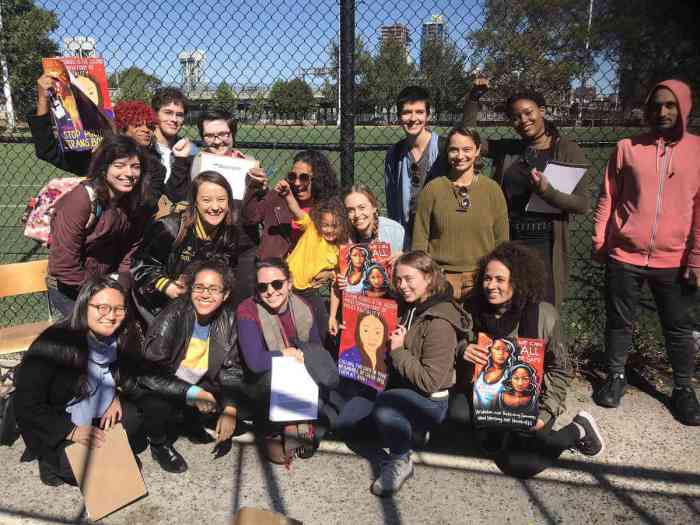November 20 is Transgender Day of Remembrance. | TRANSGENDERDOR.ORG
The 15th Transgender Day of Remembrance provides an opportunity to reflect on the many transgender people whose lives have been cut short by brutal violence simply for living as their true selves, including Harlem resident Islan Nettles, the 21-year-old African-American transgender woman who was viciously attacked in August by an assailant who shouted anti-LGBT slurs at her and her friends. Nettles died at Harlem Hospital several days after the assault and police are still sorting through varying witness accounts of the incident as they consider whom to charge and with what specific crime.
The Transgender Day of Remembrance began in 1999 when activists held a vigil to honor Boston activist Rita Hester, a 34-year-old African-American transgender woman brutally murdered the previous year in her apartment. Transgender advocate Gwendolyn Ann Smith organized what has grown into a worldwide commemoration of all those killed by anti-transgender violence. Hundreds of thousands of people across the globe now observe the solemn day.
The commemoration is a somber occasion that allows the LGBT community and its supporters an important opportunity to memorialize the thousands of transgender lives lost to senseless violence. The vast majority of victims have been transgender women of color like Islan and Rita. The Transgender Day of Remembrance official website reports that on average more than one transgender person is murdered per month around the world.
In addition to violence, transgender people also often endure huge disparities in health care, education, employment opportunities, housing, and public accommodations. A 2011 study, “Injustice at Every Turn,” by the National Center for Transgender Equality and the National Gay and Lesbian Task Force, revealed wide ranging inequalities facing transgender people in the United States.
“Respondents were nearly four times more likely to live in extreme poverty, with household income of less than $10,000, and twice as likely to be unemployed compared to the population as a whole,” the report stated. “Half of those surveyed reported experiencing harassment or other mistreatment in the workplace, and one in four were fired because of their gender identity or expression.”
These are just a few of the harsh realities revealed in the report. But despite such obstacles, the study showed that transgender people continue to be extremely resilient, overcoming immense odds to access the services they need and working hard to lead happy, healthy, and productive lives.
I see that kind of resilience on a daily basis, in my role as executive director of the Transgender Legal Defense & Education Fund. Whether we’re helping someone legally change their name to reflect their true identity, fighting to ensure a transgender child is treated equally at school, or working to right the wrongful firing of a transgender employee, we are lucky to see firsthand the spirit and determination of people who will not waiver in their quest to live authentically.
Islan Nettles lived life with that kind of spirit, but sadly, someone with hate in their heart found her mere existence an affront and made her pay with her life. The loss of Islan in New York City and countless other transgender people worldwide, is a stark reminder of the need to eliminate anti-transgender violence and hatred in our society. The Transgender Day of Remembrance gives all of us the opportunity to rededicate ourselves to that mission.
We must never forget Rita Hester, Islan Nettles, and so many others who have been singled out for attack, based solely on who they were. Violence against transgender people must end. We, as a community, can and must do better.
Michael Silverman is the executive director of the Transgender Legal Defense & Education Fund (TLDEF), an organization committed to ending discrimination based upon gender identity and expression and to achieving equality for transgender people through public education, test-case litigation, direct legal services, and public policy efforts.


































